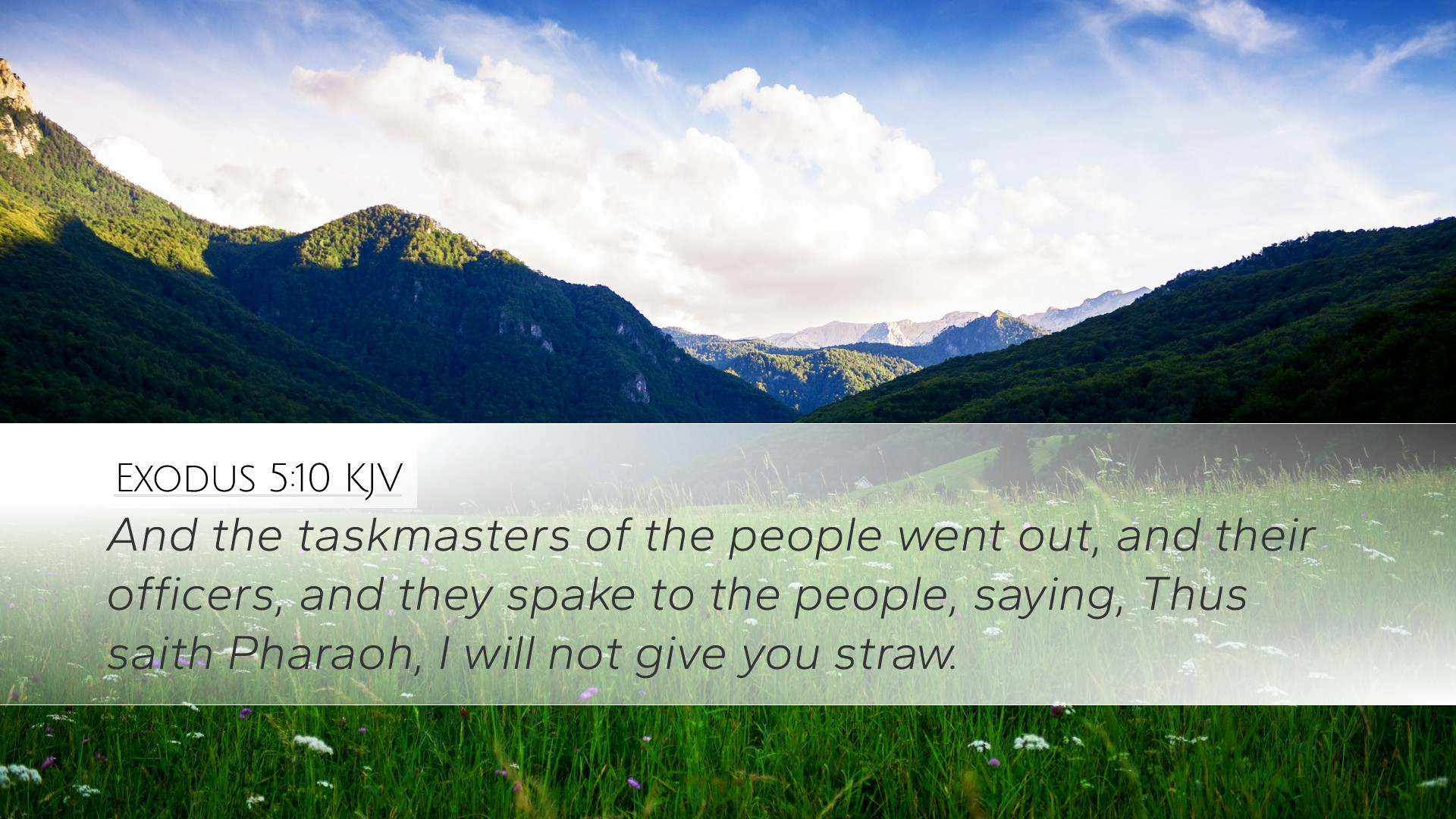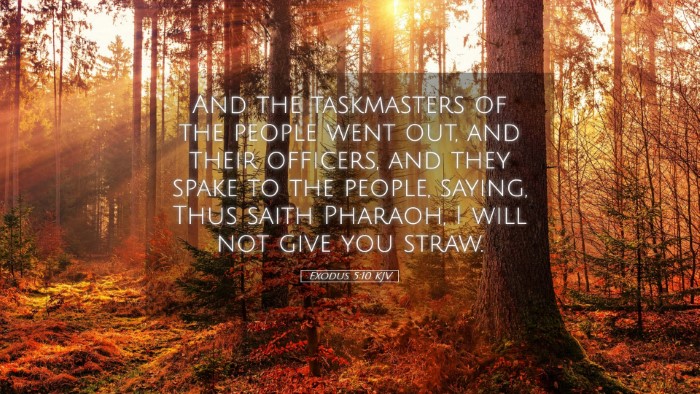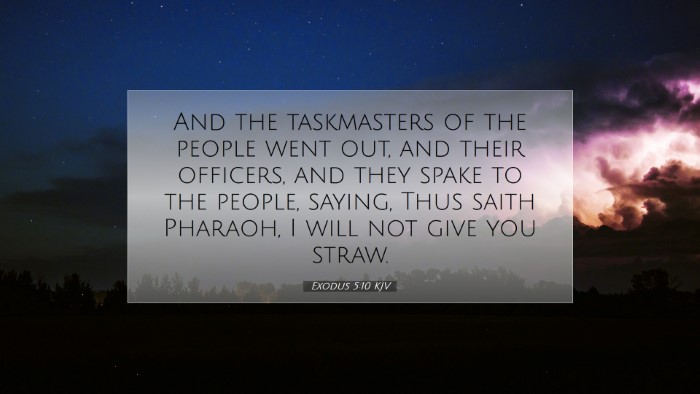Commentary on Exodus 5:10
Text of Exodus 5:10 (KJV): "And the taskmasters of the people went out, and their officers; and they spake to the people, saying, Thus saith Pharaoh, I will not give you straw."
Introduction
The context of Exodus 5:10 lies within the early narrative of Israel's oppression in Egypt. This verse highlights the Pharaoh's oppressive policies and the role of the taskmasters in enforcing these measures. Yehovah's plan for His people and their eventual liberation comes into focus through this harsh treatment.
Analysis of Key Themes
-
The Role of Taskmasters
The taskmasters serve as cruel overseers appointed to enforce Pharaoh's will. Matthew Henry notes that these men were to ensure the labor of the Israelites met the high demands set forth by Pharaoh. They acted as instruments of oppression, reflecting the brutality of Egyptian sovereignty.
-
Pharaoh's Oppression
Albert Barnes provides insight into Pharaoh's intention to demoralize the Israelites by increasing their burdens. The command to eliminate straw while increasing quotas symbolizes a deeper spiritual and psychological oppression, aimed to break the spirit of the Israelites and undermine their hope of liberation.
-
The Significance of Straw
Adam Clarke elaborates on the practical implications of straw in brick-making—its absence would significantly impede their ability to produce bricks effectively. This was not merely an act of increased labor; it was a direct affront to the dignity and capabilities of the Hebrew workers.
Historical Context
The sociopolitical landscape of Egypt must be understood to grasp the severity of the conditions faced by the Israelites. Historically, they were seen as a significant labor force, yet discrimination against them grew more pronounced as they multiplied and posed a perceived threat to the Egyptians. Thus, Pharaoh's reaction showcased a systemic approach to maintaining control through cruelty.
Spiritual Implications
This event serves as a poignant reminder of the spiritual struggle faced by God's people. When faced with adversity, the temptation may rise to doubt God’s promises and His timing. The oppressive measures taken by Pharaoh can be seen as a prelude to God's ultimate deliverance, reminding believers that oppression often precedes redemption.
Lessons for Believers
-
The Nature of Hardship
Life's hardships may sometimes feel insurmountable, yet this verse encourages believers to remain steadfast in faith. Matthew Henry emphasizes that God's timing is perfect and that suffering is often a part of His greater purpose for our lives.
-
God's Sovereignty
Despite the overwhelming odds against them, the Israelites serve as a testament to God's sovereignty. Their endurance would establish a foundation for the mighty deliverance God was preparing to execute, fulfilling His covenant promises.
Conclusion
In Exodus 5:10, we glean profound insights into the conditions of oppressive labor, the physical and spiritual challenges faced by the Israelites, and the overarching narrative of God’s deliverance. This passage invites pastors, theologians, and scholars to reflect not only on the historical context but also on the contemporary applications for believers facing oppression in various forms today. The story remains relevant, illuminating the path from suffering to salvation, emphasizing that God's plans for His people cannot be thwarted, even in the face of overwhelming obstacles.


